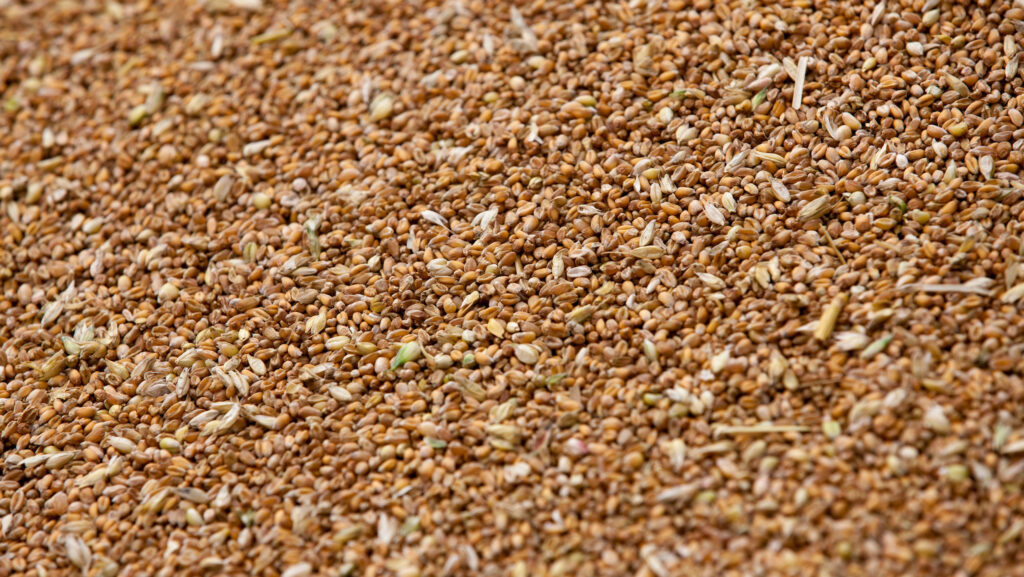Global groups sign agreement to fight illegal seed practices
 © Tim Scrivener
© Tim Scrivener The International Seed Federation (ISF) has joined forces with 12 global organisations to represent the interests of plant breeders in the fight against illegal seed practices.
A historic memorandum of understanding was signed at the ISF World Seed Congress held in Rotterdam, the Netherlands, at the end of May.
The agreement aims to increase awareness of illegal seed practices, promote value in agricultural and horticultural sectors and foster innovation for farmers and growers.
See also: Cereals 2024: Why September drilled OSR can boost yield
The organisations state that such innovation is crucial to the development of plant varieties that meet the current and future needs of plant breeders, including tolerance to changing weather patterns and resistance to pests and diseases.
Marco van Leeuwen, the president of the ISF, said: “It is time we act together to raise awareness about the magnitude and serious consequences illegal activities in seeds have not only economically to seed companies and farmers, but also to consumers.”
What are illegal seed practices?
Illegal seed practices cover activities including: counterfeit seeds, fraudulent labelling, intellectual property infringements, regulatory offences and thefts of proprietary material through the incorrect use and sharing of farm-saved seed.
Although there is no hard data about the prevalence of global illegal seed practices, a recent survey conducted by ISF revealed it is widespread, affecting a range of countries, crops and supply chains.
The International Seed Federation states: “Depending on the crops and geographies, illegal seeds may account for up to 50% of the market and have consequences for farmers, who could face serious crop failures and economic losses.”
However, some fear that corporate seed laws unfairly criminalise the thousand-year-old practice of seed saving.
Antonio Villaroel, managing director of Gestión de Licencias Vegetales, one of the 13 organisations that signed the agreement, said: “We must remember that plant breeders are those who, thanks to research in plant improvement, work every day to provide solutions from the farmer to the consumer.”
Mary Ann Sayoc, president of the Seeds Innovation and Protection Initiative, added: “Together we can work harder, and reach more people with our messages, which support the fight against illegal seed practices and ensure that the work we do every day is valued. We cannot forget that the seed is the first link in the value chain.”
International Seed Federation partners with World Trade Organisation
As part of an effort to raise awareness about illegal seed practices, the International Seed Federation has written a chapter on the implications of such practices in a World Trade Organisation (WTO) publication entitled “Illicit Trade in Food and Food Fraud”.
In the publication, Doaa Abdel-Motaal, senior counsellor at the WTO Agriculture and Commodities Division, said: “Illicit trade and fraud in the agri-food sector has a wide range of impacts on various stakeholders, including consumers, farmers, agri-businesses, regulators and other operators within the food industry.”
Although the global cost of fraud to the food industry is difficult to determine given the clandestine nature of the activity, annual estimates are in the range of US $30-50bn (£24-39bn).
This does not include losses associated with illicit trade in alcoholic beverages.
The international organisations that signed the agreement
- International Seed Federation (ISF)
- African Seed Trade Association (AFSTA)
- Asia and Pacific Seed Alliance (APSA)
- Euroseeds
- Seed Association of the Americas
- Anti-Infringement Bureau for Intellectual Property Rights on Plant Material (AIB)
- The Breeders Trust
- International Community of Breeders of Asexually Reproduced Horticultural Plants (CIOPORA)
- CropLife International
- Gestión de Licencias Vegetales (GESLIVE)
- SICASOV
- Seed Innovation Protection Alliance (SIPA)
- Seeds Innovation and Protection Initiative (SIPI)

